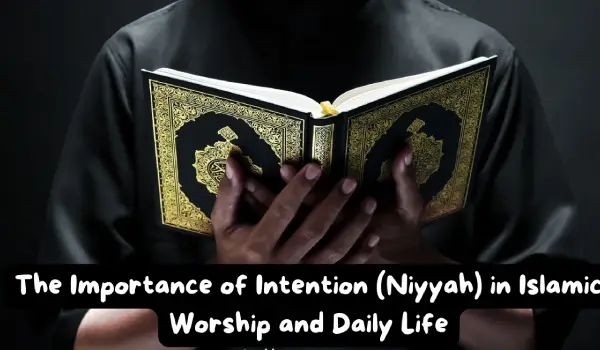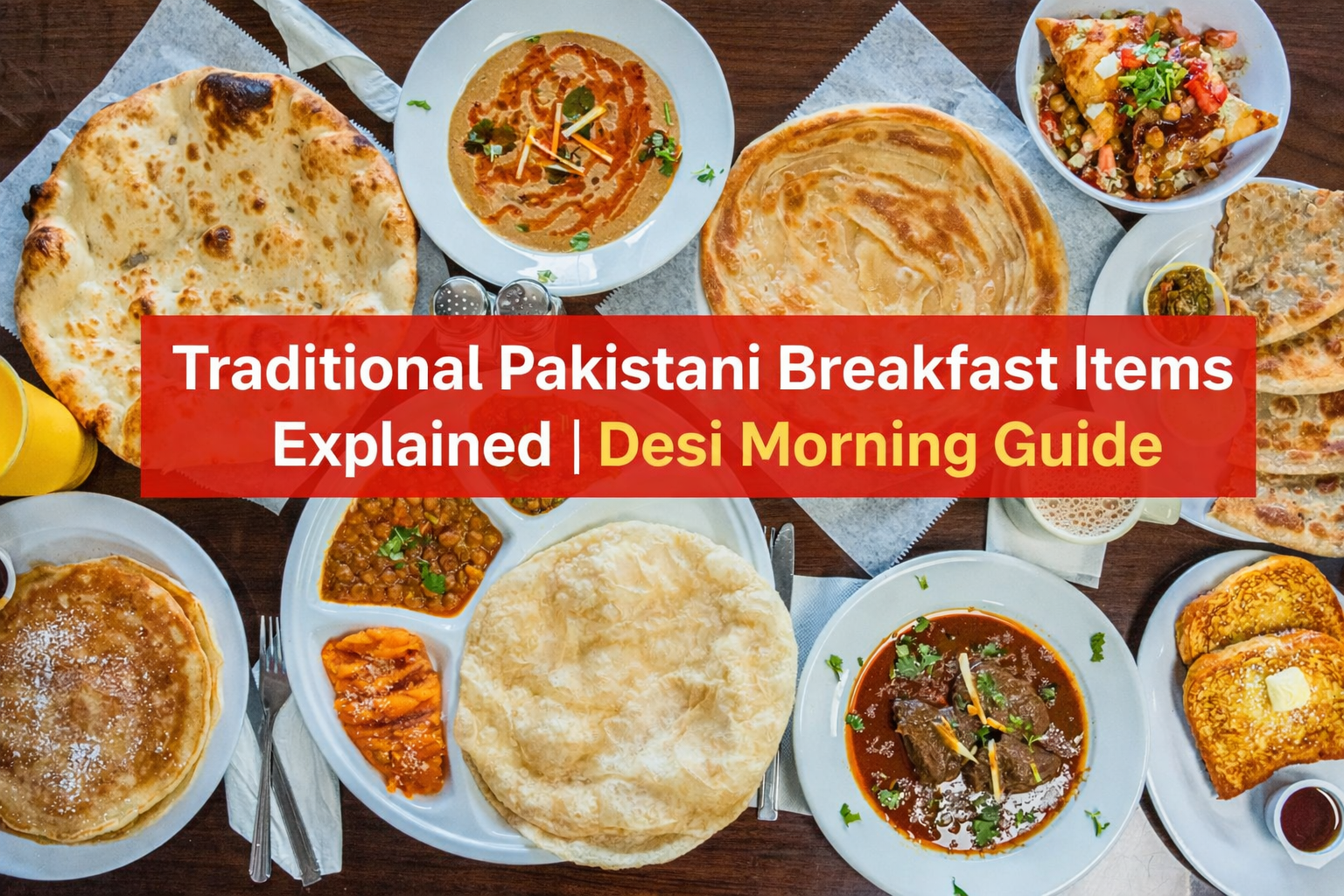Allama Iqbal is one of the most celebrated poets and philosophers in the Muslim world, widely regarded as the spiritual father of Pakistan.
Born in 1877, his profound contributions to literature and philosophy have left a lasting impact on Islamic thought and the collective consciousness of the Muslim Ummah.
Through his powerful verses, known as Allama Iqbal Islamic Poetry, Iqbal inspired millions to embrace self awareness, unity, and revival of Islamic values.
His works go beyond mere poetry; they serve as a source of motivation and guidance for Muslims striving to align their lives with principles of justice, freedom, and spiritual growth.
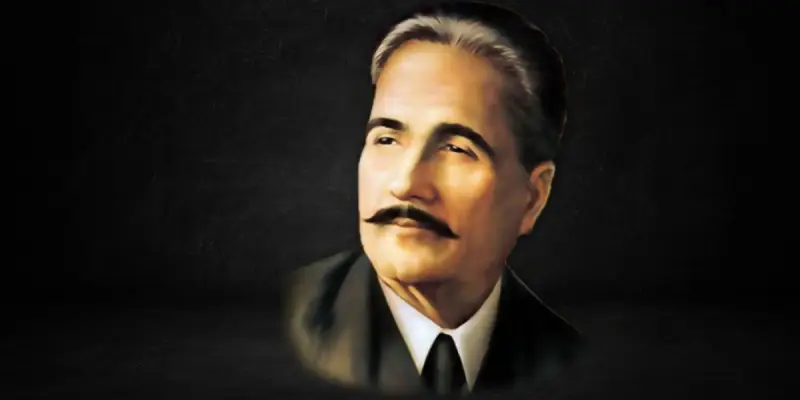
Iqbal’s deep spiritual insight is captured in these words:
“نماز کا وہ انداز کہ مساجد میں رونق ہو
دعا میں وہ خشوع کہ آسمان جھک جائے”
Alongside Allama Iqbal Islamic Poetry visionary ideas, Quaid-e-Azam Muhammad Ali Jinnah played a crucial role in transforming these ideals into the political reality of Pakistan, giving a home to the Muslim Ummah.
Table of Contents
ToggleWho Was Allama Iqbal?
Allama Muhammad Iqbal (1877–1938) was born in Sialkot. He studied philosophy and law in Lahore, Cambridge, and Munich, earning a PhD. He became a renowned poet, philosopher, and visionary who awakened a sense of identity and purpose in the Muslim Ummah.
Philosopher, Poet & Visionary
Iqbal’s legacy lives on through Allama Iqbal Islamic Poetry, which emphasizes faith, self-respect, and the revival of Islamic values. His poetry aimed to reconnect Muslims with their spiritual roots and inspire them to rise as a unified Ummah.
One of his spiritually rich couplets says:
“اگر ہو عشق تو ہے کفر بھی مسلمانی
نہ ہو عشق تو مسلماں بھی کافر و زندیق”
This reflects Iqbal’s belief that true Islam is not just ritual, but heartfelt love and devotion to Allah.
Role in the Pakistan Movement
In his 1930 Allahabad Address, Iqbal envisioned a separate homeland for Muslims an idea that laid the foundation for Pakistan. His dream, deeply embedded in Allama Iqbal Islamic Poetry,
was later turned into reality by Quaid-e-Azam Muhammad Ali Jinnah, shaping the future of the Muslim Ummah in South Asia.
Certainly! Here’s an expanded version of “Themes in Allama Iqbal’s Islamic Poetry” with the focus keyword Allama Iqbal Islamic Poetry used twice, and relevant Islamic couplets added to support the themes:
Themes in Allama Iqbal Islamic Poetry
Allama Iqbal Islamic Poetry is deeply rooted in the Quranic spirit and the revival of Islamic identity. His verses go beyond literary beauty they carry powerful messages that call Muslims to awaken,
unite, and rediscover their true potential. Below are the key themes that define his poetic legacy:
Tawheed (Oneness of Allah)
Tawheed, the belief in the absolute oneness of Allah, is the foundation of Iqbal’s message. He saw true freedom and dignity in complete submission to Allah alone. Iqbal emphasizes that a believer’s strength comes from unwavering faith in the Creator.
“یہی آئینِ فطرت ہے، یہی اسلام ہے میرا
کہ دنیا میں ہو تُو غالب، تو لا إله إلا الله”
Khudi (Self-Realization)
The concept of Khudi developing one’s inner self and recognizing one’s divine potential is central to Allama Iqbal Islamic Poetry. Iqbal believed that a strong Muslim identity comes from spiritual growth and self-awareness rooted in faith.
“خُدی کو کر بلند اتنا کہ ہر تقدیر سے پہلے
خُدا بندے سے خود پوچھے، بتا تیری رضا کیا ہے”
Brotherhood and Unity of the Muslim Ummah
Iqbal repeatedly called for the unity of the global Muslim community, stressing that national and ethnic divisions weaken the strength of the Ummah. His poetry encourages collective consciousness and solidarity.
“ایک ہوں مسلم حرم کی پاسبانی کے لیے
نیل کے ساحل سے لے کر تابخاکِ کاشغر”
Revival of Islamic Values
Iqbal’s poetry urges Muslims to return to the teachings of the Quran and Sunnah. He saw Islam not only as a religion but a complete way of life that ensures justice, morality, and spiritual elevation.
Youth Empowerment Through Faith
Iqbal placed immense hope in the youth, seeing them as the future leaders of the Ummah. He encouraged them to develop strong character, vision, and faith to rebuild the Islamic world.
“تیرے عشق کی انتہا چاہتا ہوں
میری سادگی دیکھ، کیا چاہتا ہوں”
This line reflects the pure and intense longing for spiritual closeness that Iqbal wanted to instill in the younger generation.
Allama Iqbal Islamic Poetry continues to serve as a source of spiritual guidance and empowerment, especially for youth seeking purpose, unity, and faith in an ever-changing world.
Most Famous Islamic Poems by Allama Iqbal
Allama Iqbal Islamic Poetry includes timeless poems that continue to uplift the spirit of the Muslim Ummah. His poems tackle themes of divine love, Muslim decline and revival, youth empowerment, and Islamic philosophy.
Below are some of his most iconic Islamic works, along with selected verses in Urdu and their English translations.
“Shikwa” and “Jawab-e-Shikwa”
These two poems are among Iqbal’s most powerful and controversial masterpieces.
- Shikwa (Complaint) expresses the grievances of Muslims towards God, questioning their decline despite their glorious past.
- Jawab-e-Shikwa (God’s Response) is the divine reply, reminding Muslims of their duties and spiritual failures.
“شکوہ خدا سے، خاک سے ممکن نہیں شکوہ
اللہ سے ہے بندے کی یہ خود فراموشی”
These poems reflect the emotional and spiritual dialogue between humanity and the Divine, making them cornerstones of Allama Iqbal Islamic Poetry.
“Lab Pe Aati Hai Dua Ban Ke Tamanna Meri”
This heartfelt prayer-poem is widely recited in schools across Pakistan and the Muslim world. It represents Iqbal’s vision for an ideal Muslim child humble, wise, and faithful.
“لب پہ آتی ہے دعا بن کے تمنا میری
زندگی شمع کی صورت ہو خدایا میری”
“Tulu-e-Islam” (The Rise of Islam)
In this inspirational poem, Iqbal calls for a new dawn of Islamic civilization. He urges Muslims to awaken from their slumber and reclaim their spiritual and moral leadership in the world.
“وہ زمانے میں معزز تھے مسلماں ہو کر
اور تم خوار ہوئے تارکِ قرآں ہو کر”
“Masjid-e-Qurtuba” (The Mosque of Cordoba)
Written during his visit to Spain, this poem celebrates the grandeur of Islamic architecture and spirit. Iqbal reflects on the Muslim golden age and the eternal essence of faith.
“تیری بنا پائدار، تیرے ستون بے شمار
شبستانِ عشق سے، ہے تیرا منور وجود”
These masterpieces of Allama Iqbal Islamic Poetry not only display literary brilliance but also serve as a deep spiritual and philosophical call to action for Muslims around the world.
Impact of Iqbal’s Poetry on the Muslim World
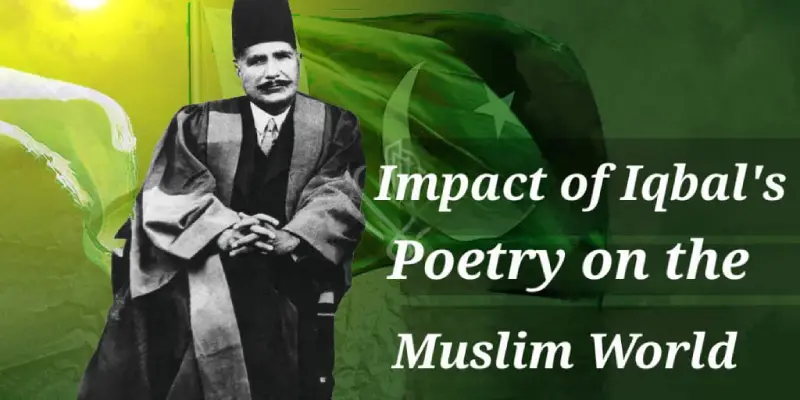
Allama Iqbal Islamic Poetry has had a profound and lasting impact on the global Muslim Ummah. His powerful verses sparked an intellectual and spiritual revival, reminding Muslims of their identity, purpose, and potential.
Revival of Islamic Thought
Iqbal’s poetry reawakened a sense of purpose and pride among Muslims during a time of political decline and cultural stagnation. He encouraged a return to Qur’anic principles, promoting self-respect, unity, and divine consciousness.
His work urged Muslims to break free from colonial mindsets and revive their lost legacy through education and faith.
Message to Youth and Scholars
Iqbal viewed youth as the architects of the future. His poetry is filled with motivational messages urging young Muslims to awaken their Khudi (selfhood), embrace knowledge, and lead with courage and faith.
“سبق پھر پڑھ صداقت کا، عدالت کا، شجاعت کا
لیا جائے گا تجھ سے کام دنیا کی امامت کا”
Global Recognition in the Muslim World
From Turkey to Egypt and Iran to Indonesia, Allama Iqbal Islamic Poetry is respected for its philosophical depth and spiritual insight.
Muslim scholars, poets, and leaders often reference Iqbal as a source of guidance and inspiration. His works are studied in universities and quoted in religious and intellectual circles across the Muslim world.
Relevance of Iqbal’s Message in 2026
In 2026, Allama Iqbal Islamic Poetry continues to resonate deeply with Muslims around the world. Despite being written over a century ago, Iqbal’s vision remains relevant as it addresses timeless challenges faced by the Muslim Ummah.
Why Iqbal’s Message Still Matters Today
Iqbal’s emphasis on spiritual awakening, self realization (Khudi), and unity offers powerful guidance in today’s fragmented world. As Muslims navigate issues like identity crises, materialism, and disconnection from faith, Iqbal’s message inspires a return to inner strength and divine purpose.
“افراد کے ہاتھوں میں ہے اقوام کی تقدیر
ہر فرد ہے ملت کے مقدر کا ستارا”
Reflection on Today’s Muslim Society
Viewed through Iqbal’s lens, many challenges faced by modern Muslim societies such as disunity, lack of leadership, and dependence on the West reflect the very concerns he raised in his work.
His call for intellectual independence and a deeper connection with Islamic values remains strikingly relevant.
Lessons for the Current Generation
Iqbal’s message urges today’s youth to rise with confidence, embrace faith driven leadership, and contribute meaningfully to society. Allama Iqbal Islamic Poetry serves as a guidebook for building character, promoting justice, and restoring the dignity of the Ummah.
How to Introduce Allama Iqbal’s Poetry to Youth
In 2026, helping youth connect with their identity and faith is more crucial than ever. Allama Iqbal Islamic Poetry offers a powerful source of motivation rooted in Islamic values, and introducing it thoughtfully can awaken a sense of purpose and pride in young minds.
Using Poetry in Schools and Madaris
Incorporating Iqbal’s poetry into educational settings can instill strong moral and spiritual values early on. Teachers and scholars can highlight his key themes like Khudi, Tawheed, and Islamic revival through interactive discussions, simplified explanations, and classroom activities.
“نہیں ہے ناامید اقبال اپنی کِشتِ ویراں سے
ذرا نم ہو تو یہ مٹی بڑی زرخیز ہے ساقی”
This verse encourages hope, effort, and the belief that even lost potential can be revived perfect for motivating students.
Role of Digital Platforms and Social Media
Social media is where today’s youth spend much of their time. Engaging videos, reels, and bite-sized explainers of Iqbal’s thoughts in both Urdu and English can bring his message to life. Podcasts,
TikTok poetry readings, and animated stories based on his works can attract and inspire even those unfamiliar with classical literature.
Encouraging Urdu Poetry Reading Among Youth
Strengthening Urdu literacy is essential for understanding Allama Iqbal Islamic Poetry in its original depth. Youth poetry clubs, Urdu poetry apps, and bilingual books with explanations can make learning enjoyable.
Hosting “Iqbal Nights” or online contests can further spark curiosity and cultural pride.
Iqbal’s timeless wisdom, if shared through the right platforms and approaches, can shape a confident, faith-driven generation prepared to lead with purpose.
Allama Iqbal’s Vision for the Muslim Youth
Allama Iqbal Islamic Poetry strongly emphasizes the vital role of youth in the revival of the Muslim Ummah. Iqbal saw young Muslims as the leaders of tomorrow called to awaken their spiritual strength (Khudi), embrace Islamic values, and lead with vision and courage.
A powerful couplet that reflects this message is:
“نوجوانوں کو سُوچنا چاہئے
یہ زمانہ ہے صرف شمشیر و سناں کے لیے”
In 2026, Allama Iqbal Islamic Poetry continues to inspire Muslim youth to rise above challenges and contribute to a stronger, more united Ummah.
Islamic Spirituality in Iqbal’s Poetry
Allama Iqbal Islamic Poetry is deeply influenced by Islamic spirituality and Sufi philosophy, especially the teachings of Rumi. His poetry centers on love for Allah and Prophet Muhammad (PBUH) and encourages self realization (Khudi) as a path to spiritual growth.
Iqbal’s verses blend Sufi themes like Tawheed and the soul’s journey toward God, inspiring believers to seek both inner and outer strength.
A famous couplet illustrating this is:
“خودی کو کر بلند اتنا کہ ہر تقدیر سے پہلے
خدا بندے سے خود پوچھے بتا تیری رضا کیا ہے”
This spiritual message remains a key aspect of Allama Iqbal Islamic Poetry today.
Allama Iqbal’s Poetry and the Quranic Message
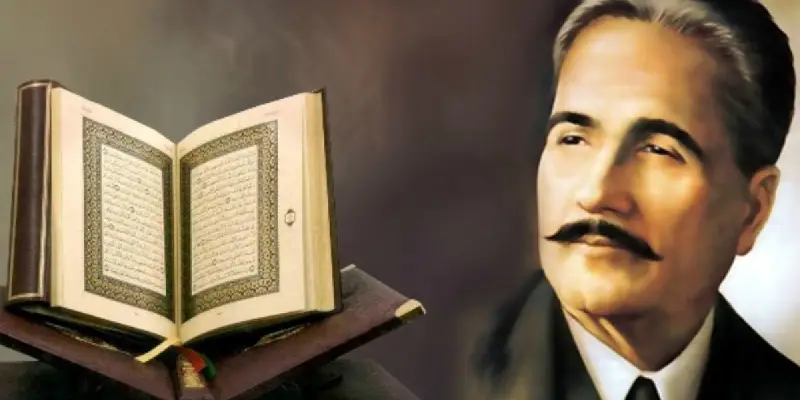
Allama Iqbal Islamic Poetry is deeply intertwined with the Quranic message. His verses often reflect key Quranic themes such as Tawheed (Oneness of Allah), justice, and spiritual awakening.
Inspired by Islamic teachings and Prophetic traditions, Iqbal emphasized living a life based on the Quran’s moral and ethical values. His poetry blends spiritual insight with motivating calls for action and faith.
A powerful example from Iqbal’s work is:
“نہ تھا کچھ تو خدا تھا، کچھ نہ ہوتا تو خدا ہوتا
ڈوب کے میں جس میں ہوتا، ساگر ہوتا وہی خدا ہوتا”
This verse beautifully expresses the Quranic concept of divine presence and eternal existence, underscoring the spiritual depth of Allama Iqbal Islamic Poetry.
Allama Iqbal’s Persian Islamic Poetry
Allama Iqbal’s Persian works like Asrar-e-Khudi and Payam-e-Mashriq are key to Islamic philosophy, focusing on self-realization (Khudi) and spiritual revival. His poetry inspires individuals to connect deeply with their inner self and God.
A famous verse from Asrar-e-Khudi states:
خودی را بسر حد نگذاشتم
تا در اقیانوس بیکران غرق شدم
This highlights Iqbal’s message of limitless self growth and unity with the Divine, making his Persian Islamic poetry timeless and influential.
Audio and Video Resources of Iqbal’s Islamic Poetry
For those wanting to experience Allama Iqbal Islamic Poetry in a more immersive way, several YouTube channels, apps, and websites offer excellent recitations.
These platforms often feature naat-style renditions, blending devotional melodies with Iqbal’s powerful verses to deepen spiritual connection.
Popular YouTube channels like Iqbal Academy Pakistan and Allama Iqbal Official provide high quality audio and video recitations. Apps such as Iqbal e Ghalib also make it easy to listen to and learn his poetry on the go.
These resources help preserve and promote Iqbal’s message, making his poetry accessible and inspiring for new generations in 2026 and beyond.
Books to Explore Iqbal’s Islamic Thought Further

To deepen your understanding of Allama Iqbal Islamic Poetry, there are several recommended books available in both Urdu and English. These works offer detailed insights into Iqbal’s philosophy, spiritual themes, and poetic style.
Many of these books provide tafsir style explanations, interpreting his poems through the lens of Islamic teachings and Quranic concepts.
Notable titles include Iqbal: Poet Philosopher of Pakistan by Annemarie Schimmel and The Reconstruction of Religious Thought in Islam by Iqbal himself.
These resources are invaluable for anyone looking to grasp the rich layers of meaning in Iqbal’s poetry and its relevance to Islamic thought.
Conclusion
Allama Iqbal’s timeless message centers on self awareness, spiritual awakening, and unity within the Muslim Ummah. His poetry continues to inspire individuals to pursue justice, faith, and personal growth in a rapidly changing world.
In 2026, it is vital to revive the spirit of Iqbal embracing his call for empowerment and faith to navigate modern challenges with strength and hope.
As Iqbal beautifully expressed:
نہیں ہے ناامید اقبال اپنی کشت ویراں سے
ذرا نم ہو تو یہ مٹی بڑی زرخیز ہے ساقی
For more informative blogs like this visit to our site:(visualpakistan.com)
FAQs
What are the best Islamic poems written by Allama Iqbal?
Popular works include Shikwa, Jawab-e-Shikwa, Asrar-e-Khudi, Tulu-e-Islam, and Masjid-e-Qurtuba.
Where can I read Allama Iqbal’s poetry in Urdu and English?
Many websites, online libraries, and apps provide free access to his poetry in both languages.
What is the meaning of “Khudi” in Iqbal’s poetry?
Khudi refers to selfhood or self realization a spiritual awakening and strengthening of the individual’s inner self.
Is Allama Iqbal’s poetry taught in schools?
Yes, his poetry is part of the curriculum in many Pakistani schools and madaris, inspiring young minds.
How is Iqbal’s message relevant to modern Muslims?
Iqbal’s emphasis on unity, faith, and self empowerment remains vital for addressing contemporary challenges facing the Muslim world.
What themes are common in Allama Iqbal’s poetry?
Allama Iqbal’s poetry commonly explores themes such as selfhood (Khudi), faith, freedom, unity of the Muslim Ummah, spiritual revival, and resistance against oppression.
Which language did Allama Iqbal mostly write in?
Allama Iqbal wrote poetry primarily in Urdu and Persian, though some of his ideas have been translated into English and other languages.
Why is Allama Iqbal called the Poet of the East?
He is called the Poet of the East (Shair-e-Mashriq) because his poetry deeply reflects Eastern philosophy, Islamic values, and spiritual awakening.
What is the significance of Shikwa and Jawab-e-Shikwa?
Shikwa expresses the grievances of Muslims to God, while Jawab-e-Shikwa presents God’s response, emphasizing self reform, faith, and action.
Did Allama Iqbal influence the creation of Pakistan?
Yes, Allama Iqbal’s philosophy and vision inspired the idea of a separate Muslim state, playing a key intellectual role in the creation of Pakistan.

